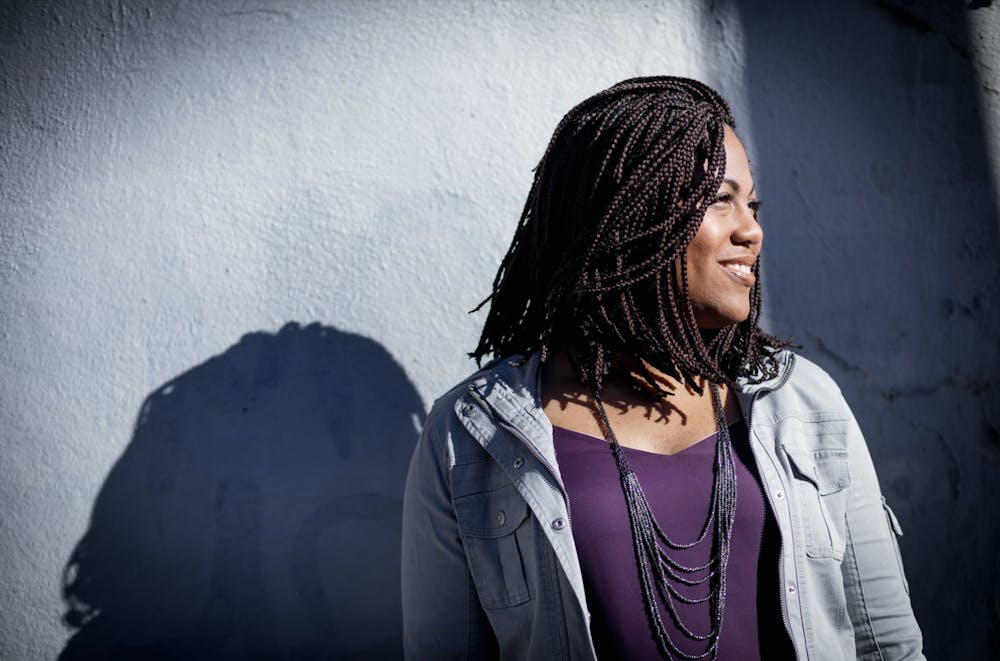In a virtual discussion held Wednesday to celebrate the life, work and love of Martin Luther King Jr., speaker and writer Austin Channing Brown spoke about pursuing progress in racial equity with Jaronda Miller-Bryant, program director of engaged scholarship at the Maxine Platzer Lynn Women’s Center. Channing Brown's best-selling book, “I’m Still Here: Black Dignity in a World Made for Whiteness,” discusses her journey to finding self-worth and obstacles that thwart attempts at pursuing racial justice.
The event is one of several sponsored by the University’s Division for Diversity, Equity and Inclusion in a two-week celebration of King’s life and work. The events seek to highlight pressing issues within the Charlottesville community with an overarching focus on racial equity.
Women’s Center Director Abby Palko opened the event by acknowledging “the heaviness of the past year,” recalling words poet laureate Amanda Gorman recited at President Joe Biden’s inauguration earlier that day.
“There is always light, if only we’re brave enough to see it,” Palko said, quoting the final lines of Gorman’s inaugural poem. “If only we’re brave enough to be it.”
In response to a question from Miller-Bryant about how community members can ensure that efforts for unity are truly rooted in justice, Channing Brown contrasted the way in which law enforcement responded to the insurrectionists who stormed the Capitol Jan. 6 and the Black Lives Matter protesters over the summer.
“Unity is not in and of itself good,” Channing Brown said. “The insurrectionists [at the Capitol] were unified in their efforts … We must reflect on what we are being unified to or for, and it must be rooted in justice.”
Channing Brown continued on to stress that, as human beings, people must honor the dignity of everybody, not just white people, and ensure that individuals’ shared humanity is reflected in actions, policy and respectful treatment of one another.
Miller-Bryant and Channing Brown reflected on the importance of finding space for joy both as a mode of resistance and for the sake of self-care. At the same time though, Miller-Bryant and Channing Brown conceded that the road toward racial equity may seem bleak, especially in the context of the repeated killings of Black men and women across the country, including Breonna Taylor, Treyvon Martin and George Floyd.
For Miller-Bryant, persistently fighting for progress is a difficult task given these realities. However, Channing Brown said this reality can be a motivator.
“The more bleak things become, the more compelled I become,” Channing Brown said.
For white people seeking to be allies in the movement for racial equity, Channing Brown suggested prioritizing being courageous over kind, supporting the work that’s already being done and being “teachable and committed.” Above all, she emphasized asking how to help and not getting angry with the answer.
Channing Brown also repeatedly reminded white people not to confuse having a Black friend with doing racial justice work, saying “I am not the work.” Instead, Channing Brown said that white allies “should exert wisdom and self-reflection” to think about how they have participated in white supremacy and how they can build credibility.
Another important step people must take in the way of racial progress, Channing Brown asserts, is to “undo the lie of anti-Blackness.” Too often, Channing Brown said, there is a belief that “Black people need to change in order for them to receive justice,” which she argues places undue blame and burden on Black people and wrongly excuses white supremacists.
Channing Brown referred to the events of the past year — egregious violence against Black people, the election of the U.S.’s first Black, female vice president and protests seeking justice against police brutality and white supremacy — as an “intersection” where people acknowledge a pervasive sense of grief given rising COVID-19 deaths while also desperately wanting to celebrate this historic moment.
She recalled a question she was once asked by a supervisor — “when will it be enough?” In other words, when will we have made enough progress towards racial justice in our institutions and our society?
According to Channing-Brown, there is always more to be done.
“We must acknowledge change and want more,” Channing Brown said.
Towards the end of the event when Miller-Bryant opened the floor for questions, one audience member asked whether there will ever be any amount of reform that will achieve justice or whether people must recreate systems entirely.
Channing Brown paused, but eventually said that it depends on the department and that change-makers must ask themselves what their goals are, who they’re working with and whether the institution could benefit from reform or if it needs to be burned down.
Channing Brown recalled her experience as a residential advisor in college and said that by focusing on the experiences of students of color, she could make positive change “without needing permission” from other departments within the institution.
Ultimately, they said, it is up to individuals to reflect on these questions and act accordingly.





